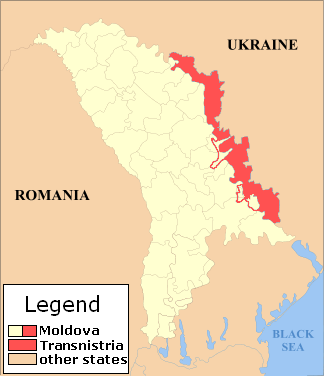Way Off the Beaten Track: 2 Unknown 'Countries'

From Wikipedia....
Bougainville Island is the largest island in the Solomon Islands archipelago and the main island of the Autonomous Region of Bougainville. The region is also known as Bougainville Province or the North Solomons.
The population of the province is 175,160 (2000 census). It includes the adjacent island of Buka, and assorted outlying islands including the Carterets.
The Solomon Islands is a separate state.
Louis Antoine de Bougainville named the island after himself.
In the 1970s, Bougainville Copper Limited (BCL, a subsidiary of Rio Tinto) began exploiting the island's huge copper reserves. Resentment over the negative effects of the company's activities on the area and the politicized view that there was a lack of any tangible benefit to the islanders erupted into conflict in late 1980s. Attempts at proclaiming the independence of Bougainville (Republic of North Solomons) have occurred twice, once in 1975 and the other in 1990. In the second case the government of Papua New Guinea moved to put down what became a secessionist movement led by Francis Ona, a former surveyor for BCL. The PNG army received military aid from Australia and enlisted the support of Sandline International, a private military company. An embargo was enforced to weaken the people's resistance. However, they proved much more resilient than expected, designing their own weapons and fueling engines with vegetable oil. Peace talks brokered by New Zealand began in 1997, leading to autonomy for the island.
Also from WIkipedia....

Transnistria, also known as Trans-Dniester or Transdniestria (see section "Names" for more) is a breakaway territory located mostly in a strip between the Dniester River and the eastern Moldovan border to Ukraine. It is generally recognised internationally as being de jure in Eastern Moldova as the autonomous region Stînga Nistrului ("Left Dnestr bank"). Since its declaration of independence in 1990, and especially after the War of Transnistria in 1992, it is governed de facto by the unrecognized Pridnestrovian Moldavian Republic (PMR, also known as "Pridnestrovie"), which claims the east bank of the river Dniester and a small land on the right bank of the Dnestr river (in the historical region of Bessarabia), as the city Bender and its surrounding localities.
The modern Republic of Moldova does not recognize the secession and considers territories controlled by the PMR to be a part of Moldova's sovereign territory. Transnistria's sovereignty is not recognized by any member of the United Nations and it has no official diplomatic relations with any of those states.
After the dissolution of the USSR, tensions between the Moldovan government and the breakaway PMR escalated into a military conflict that started in March 1992 and was concluded by a ceasefire in July 1992. As part of that agreement, a three-party (Russia, Moldova, Transnistria) Joint Control Commission supervises the security arrangements in the demilitarized zone, comprising 20 localities on both sides of the river. Although the ceasefire has held, the territory's political status remains unresolved: commonly considered De jure part of Moldova, Transnistria is a de facto independent state. It is organised as a presidential republic, with its own government, parliament, military, police, postal system, and currency. Its authorities have adopted a constitution, flag, national anthem, and a coat of arms. However, following a 2005 agreement between Moldova and Ukraine, all Transnistrian companies seeking to export goods though the Ukrainian border must be registered with the Moldovan authorities. This agreement was implemented after EUBAM started its activity in 2006. Most Transnistrians are Moldovan citizens,but there are also many Transnistrians with Russian and Ukrainian citizenship.
Transnistria is sometimes compared with other post-Soviet frozen conflict zones such as Nagorno-Karabakh, Abkhazia, and South Ossetia. The latter two have recognised Transnistria as an independent state and plan to establish "diplomatic relations" in return for Transnistria's recognition of them.
Zimbabwe Dictator Sending Wild Animals, Including Baby Elephants, to Certain Death in North Korea
Chavez Targets Street Corner Money Changers

Having wrecked his oil-rich country's economy, the Communist Crackpot of Caracas, Hugo Chavez, is taking aim at street corner money changers and foreign exchange websites, as reported here.
The man is a menace to his own people and his neighbors--and to the United States.
One hopes the Obama administration no longer dreams of engaging this Iranian-backed criminal, who has allowed Iran's Revolutionary Guards and Hezbollah to establish terrorist cells and bases in Venezuela.
Influential Mad Mullah Spills the Beans: Iran Regime Goals are 'Greater Iran' and Global Islamic Rule
The clerical fascist is not speaking out of his turban. An important figure, with his own newspaper, he reflects regime thinking.





















